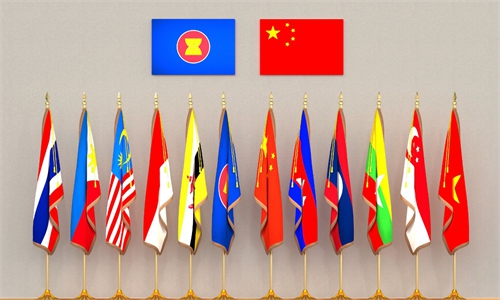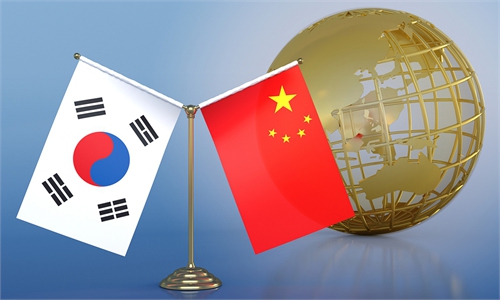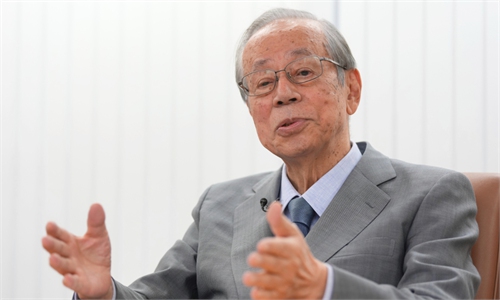China, ASEAN 'should be vigilant to external threats' while eyeing greater cooperation

Wang Yi (left), director of the Office of the Foreign Affairs Commission of the Communist Party of China's Central Committee, speaks during the Association of Southeast Asian Nations (ASEAN) Plus Three Foreign Ministers' Meeting in Jakarta on July 13, 2023. Photo: AFP
China and ASEAN member states are pushing ahead talks on version 3.0 of a free trade agreement (FTA), China's top diplomat Wang Yi revealed at a China-ASEAN 10+1 meeting in Jakarta on Thursday. The two sides should "overcome noises and external threats and eye common growth and prosperity," analysts said .
Wang, director of the Office of the Foreign Affairs Commission of the Communist Party of China's Central Committee, underscored the achievements in joint construction of the China-proposed Belt and Road Initiative, citing Cambodia's first expressway linking capital Phnom Penh and the port city of Sihanoukville, the China-Laos railway that offers cross-border passenger services, and the Jakarta-Bandung high-speed railway, the first of its kind in ASEAN.
Wang also welcomed the second reading of the Code of Conduct (COC) for the South China Sea. China supports all parties in forming a guideline document to speed up the COC and is willing to continue to play a constructive role in realizing a COC at an early date.
At a meeting with Singaporean Foreign Minister Vivian Balakrishnan on Wednesday, Wang noted that this year marks the 20th anniversary of China's accession to the Treaty of Amity and Cooperation in Southeast Asia. Both China and ASEAN should take it as an opportunity to usher in a new vision for cooperation and further promote China-ASEAN ties.
China and ASEAN should jointly safeguard the global free trading system, uphold ASEAN centrality, and jointly maintain regional peace and development, Wang said.
Xu Liping, director of the Center for Southeast Asian Studies at the Chinese Academy of Social Sciences, told the Global Times on Thursday that as the world faces sluggish economic recovery and geopolitical challenges, it is crucial that the Asia-Pacific maintains stability in its industrial and supply chain, upholds the principle of openness and free trade, and continues to be the global engine.
The upgrading of the FTA is a hallmark of the steadily developing China-ASEAN partnership, despite the challenges, Xu said.
China's imports and exports with ASEAN, its largest trading partner, reached 3.08 trillion yuan ($420 billion) in the first half of 2023, up 5.4 percent year-on-year.
It is hoped that through the FTA 3.0 negotiations and future implementation, pact members can consolidate mutual trust, dispel any sense of uncertainty and enjoy greater development benefits, analysts said, expecting an upgraded FTA and the Regional Comprehensive Economic Partnership (RCEP) to reinforce each other.
Indonesia, the rotating chair of ASEAN, adopted the theme "ASEAN Matters: Epicentrum of Growth" for the meetings. However, some Western media have been focused on internal divergence in ASEAN over the Myanmar crisis and disputes over the South China Sea, claiming the bloc is losing solidarity and centrality.
Chinese analysts underscored the idea that ASEAN negotiations and consensus building are different from a super-state body like the EU, and imposing sanctions on a member is not the ASEAN way to solve problems.
Tang Qifang, an associate research fellow at the China Institute of International Studies, told the Global Times that ASEAN centrality must be respected in regional issues, be it Myanmar or the South China Sea.
A chaotic South China Sea doesn't serve ASEAN interests but only benefits external forces. Both China and ASEAN should stay vigilant to any attempt to exaggerate the disputes or intensify the situation, Tang said.



